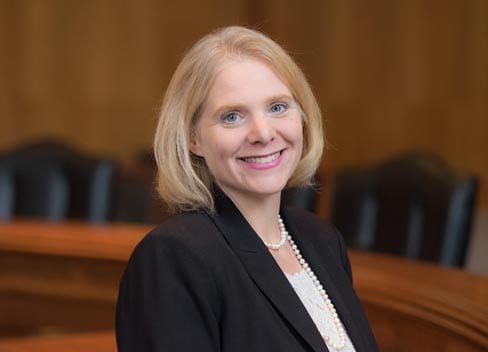Note From the CEO
Terminal illnesses can’t be put on hold.
Mar 21, 2020

As I look out the window and welcome the first signs of spring — trees flowering, warmer weather, birds singing — life almost feels normal. It’s nearly unfathomable that just a couple of weeks ago, life WAS normal.
Today, our world is dramatically different. Uncertainty is the new normal, as are face masks, hand sanitizers, timed grocery visits and social distancing. The COVID-19 pandemic has impacted how we live, how we work and how we connect. It has caused us to put some aspects of our lives on hold and to rethink our approach to others.
Yet, terminal and serious illnesses can’t be put on hold. That’s why I want to update you on actions we are taking to support you and continue our progress to ensure that those most vulnerable and in need of end-of-life options aren’t forgotten or marginalized during these challenging times.
In response to concerns raised from supporters across the country that the pandemic was going to result in a shortage of quality hospice and palliative care, we have joined the movement to expand telehealth; those efforts are described in more detail in the newsletter.
While we quickly responded to the immediate crises in end-of-life care caused by COVID-19, our efforts to advance our other priorities did not, and will not, stop. In fact, some of them also became more urgent as the American public at large became more aware of their mortality. That is why in this issue we are previewing our launch of a multi-week public education campaign on National Healthcare Decisions Day designed to address the real and growing concerns about end-of-life planning in the wake of coronavirus.
While legislative sessions may have halted early, advancing medical aid in dying remains a top priority for us. Just before COVID-19 hit, I had the pleasure of testifying at a hearing to review the progress of the implementation of the California End of Life Option Act. I shared the evidence and data in California and the other authorized states on what works well with the current model law, and areas for improvement. These are lessons that we hope lawmakers in every state will consider so that more eligible patients are able to access the laws. In this issue, we feature the lessons that I shared with California lawmakers during that hearing.
Over the past few weeks we have quickly and nimbly adjusted to the realities of this global pandemic. We are in the early stages of a crisis that is likely to have a lasting and profound effect on all of us. As we navigate this new “normal” we remain united with you in our efforts to further advance our movement toward compassionate end-of-life care. On a personal note, I hope that you are adjusting to the new normal and that you and your loved ones have managed to escape the devastation of this disease.
With appreciation and concern.
Kim Callinan


